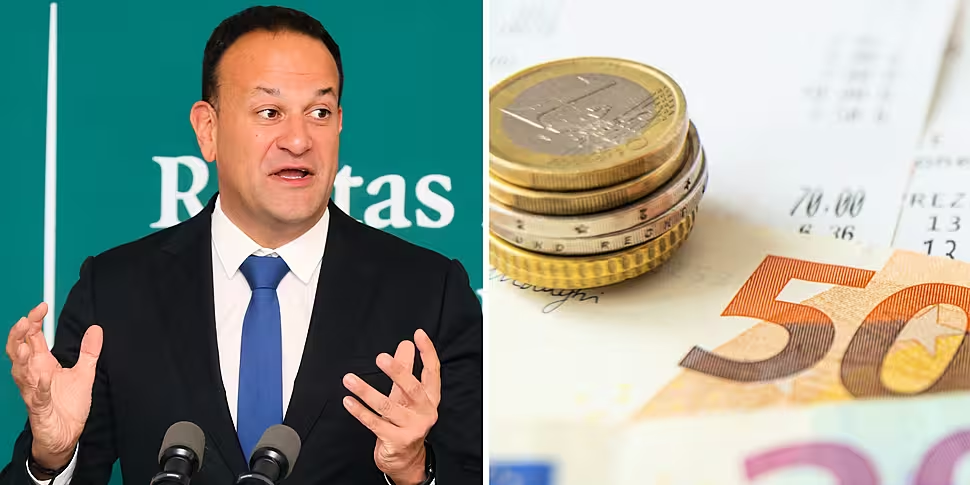Energy credits or a tax-benefit system would be the most effective way to target struggling low-income households, according to the ESRI.
Yesterday, Taoiseach Leo Varadkar promised energy supports for households and businesses as part of a cost-of-living package in the upcoming budget.
Mr Varadkar said Government expects electricity and gas prices to decrease before the budget, but he anticipates that there will still be a need for State support.
No decisions on budgetary measures have been formally discussed by the Coalition, but the Taoiseach said the "easy option" would be energy credits as "you can just take it off the bill, it applies to everyone".
Government also intends to reduce income tax in October's Budget, which Mr Varadkar said will "allow more people to keep more of the money they earn".
"Somebody on €40,000 or more a year gets €3000 more in their pocket than they would have, had there been a left-wing Government in office," he said.
On Newstalk Breakfast, Economic and Social Research Institute (ESRI) Economist Muireann Lynch said the reach of the supports will "depend on how exactly they are channelled".
"If you look at something like trying to reduce people's bills directly – through reducing VAT, reducing Carbon Tax, reducing excise duty – that actually goes mostly to higher income households," she said.
"That's because higher-income households use more energy compared to lower-income households."
If Government chooses to go with energy credits, Ms Lynch said lower-income households will benefit more "in proportion to their income".
"If you want to focus heavily on using the tax and benefit system to give support to households, then that actually is the best way to target lower-income households," she said.
"Of course, it does nothing to actually bring the bill down directly."
Windfall Tax
The revenue for the new supports is coming from windfall taxes, according to Ms Lynch.
"The reason we have revenues there is because the design of the windfall taxes actually hasn't put downward pressure on energy prices directly, but it's scooped up extra profits after the fact," she said.
"That means that you have this pile of money available to you – the European Commission even said when they were coming up with the design for this windfall tax scheme, that that revenue could be used to support households and businesses with their energy costs.
"[It is] in line with the European plan to support households in their energy costs, but without putting downward pressure on prices, which would lead us to have less of an incentive to invest in energy efficiency."
Retrofitting
Ms Lynch said there would be "no downsides" to using the windfall tax for retrofitting Irish energy with more renewable resources.
"However, the constraint there isn't really public funding – the constraint is more the capacity of the construction sector," she said.
"There are a lot of grants available. Could we increase those grants? Sure we could, but all that would really do is increase demand, and we just don't have the construction sector capacity to do this retrofitting.
"Bearing in mind, we also need the construction sector to focus very heavily on new builds, because we have a shortage of housing as well.
"I think in the meantime, you do need to support people directly as well."
You can listen back here:









